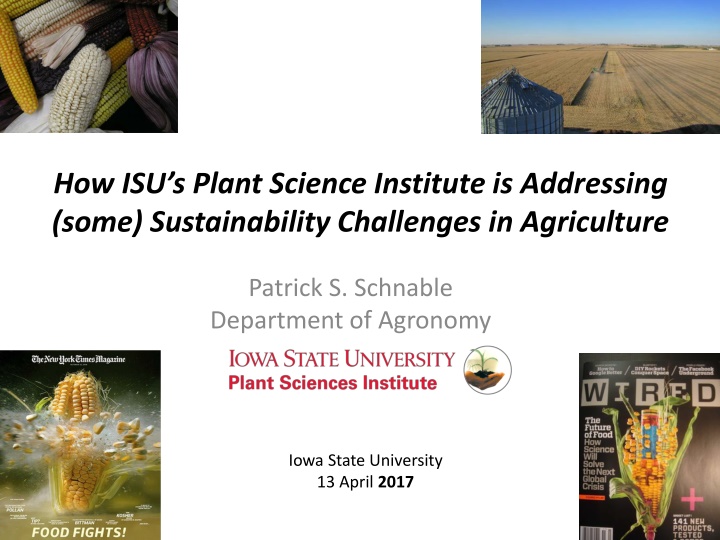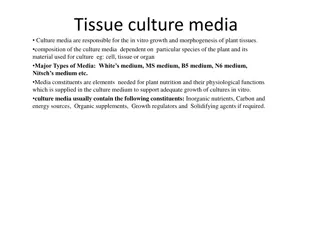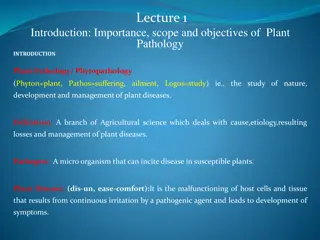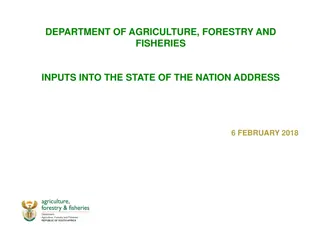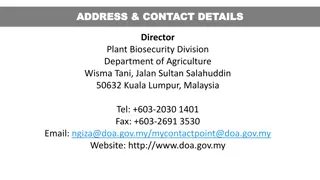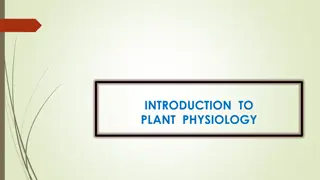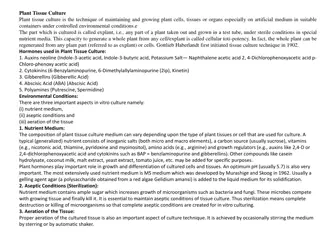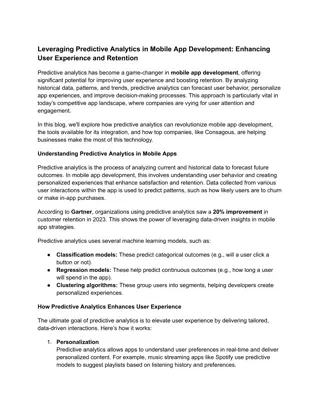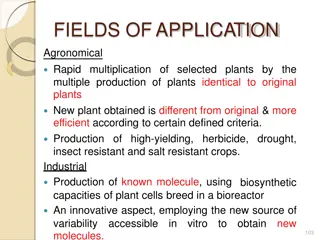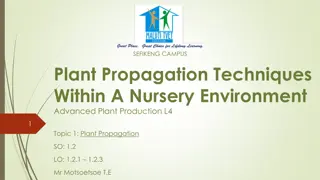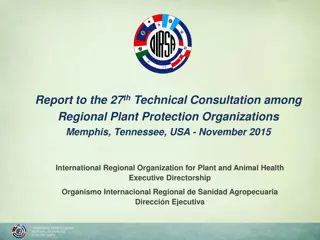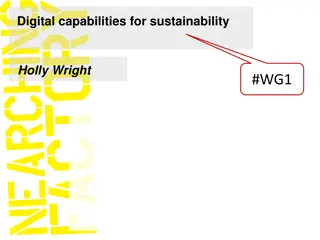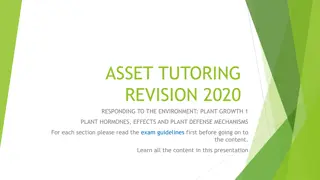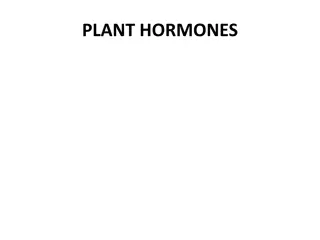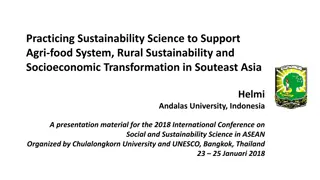Addressing Sustainability Challenges in Agriculture Through Predictive Phenomics at ISU's Plant Science Institute
ISU's Plant Science Institute is tackling sustainability challenges in agriculture by using predictive models based on genotypic, phenotypic, and environmental data. Through collaborations and investments in scholars, the institute aims to enhance plant breeding programs, improve crop resilience to climate change, and provide farmers with evidence-based recommendations for higher yields and stability.
Download Presentation

Please find below an Image/Link to download the presentation.
The content on the website is provided AS IS for your information and personal use only. It may not be sold, licensed, or shared on other websites without obtaining consent from the author.If you encounter any issues during the download, it is possible that the publisher has removed the file from their server.
You are allowed to download the files provided on this website for personal or commercial use, subject to the condition that they are used lawfully. All files are the property of their respective owners.
The content on the website is provided AS IS for your information and personal use only. It may not be sold, licensed, or shared on other websites without obtaining consent from the author.
E N D
Presentation Transcript
How ISUs Plant Science Institute is Addressing (some) Sustainability Challenges in Agriculture Patrick S. Schnable Department of Agronomy Iowa State University 13 April 2017
Sustainability Challenges in Agriculture $2B/yr Increasing demands for food, feed, fiber and fuel; decreasing amount of arable land Agricultural inputs: increasing costs (e.g., nitrogen), reduced availability (e.g., water), and undesirable ecological impacts Achieving yield stability challenging due to climate change: droughts/floods, temperature extremes, and pests & diseases-weather variability
Phenotype (P) = Genotype (G) + Environment (E)* + GxE One Approach Use massive amounts of genotypic, phenotypic and environmental data in conjunction with the Big Data paradigm to develop predictive models. *Includes crop management
Predictive Models Will: Improve accuracy of selection in plant breeding programs, thereby increasing rate of genetic gain per year Enhance our ability to efficiently breed crops to withstand the increased weather variability associated with global climate change Improve our ability to provide farmers with evidence-based recommendations for the appropriate varieties to plant in a given field, under a particular management practice in a given year, leading to increased yields and enhanced yield stability Enable daily national and global yield predictions, thereby facilitating early responses to food emergencies and avoiding market failures 4
Invest in people not projects HHMI Investigator and MPI Model 16 PSI Faculty Scholars selected from a diversity of disciplines (e.g., biologists, computational scientists, engineers, etc.) to build a predictive plant phenomics community Provided PSI Scholars with stable, flexible multi-year funding beginning in 2015
Predictive Phenomics-Related Metrics for 16 PSI Scholars (since program inception in 2015) External Grants: $15.4M (N=71) Publications: N=136* Speaking Engagements: N=139 7
P3 Cross-training engineers, plant scientists and data scientists to address key agronomic challenges of the 21st Century $3.0M Julie Dickerson, PI Ted Heindel, co-PI Carolyn Lawrence-Dill, co-PI Pat Schnable, co-PI NSF-Funded Ph.D. Traineeships at Iowa State University in Predictive Plant Phenomics www.predictivephenomicsinplants.iastate.edu 8
